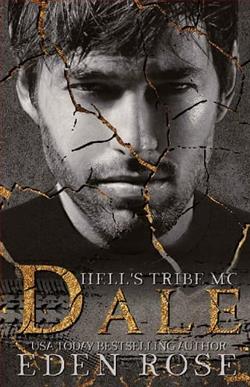Page 1 of Guardian of Talon Mountain
PROLOGUE
CALEB
Mountains Outside of Mosul, Iraq
Five Years Ago
The cold never leaves your bones, not in this place.
Most people think of the Middle East as an endless desert—and part of it is, scorched and merciless. But the other part, the part they don't see, is the mountains. Jagged and ancient, high enough to rip the breath from your lungs, and so cold it doesn’t just sting—it seeps into your marrow and freezes everything soft inside you. Your warmth. Your instincts. Your mercy.
Even on the flat, inside the compound, where the sun’s beating down and sweat clings to skin, the cold is still there. It’s the kind you carry inside you. Buried. Tucked deep behind your ribs, surrounding your heart and soul. The kind that only gets worse when you realize it was your call that got your brothers killed.
I crouch behind the stone outcropping, my rifle tight in my grip, listening to the soft crackle of comms and the irregular breathing of men trying not to die. Our mission was to intercept a small-scale arms deal in the mountains near Mosul—likelyblack market drones, nothing new to us. Intelligence was light, the terrain rough, and our orders were to move fast and clean.
Except we weren’t the only ones moving.
I should’ve known. The signs were clear—Reynolds was jittery, distracted, avoiding eye contact, and checking our six like he expected a ghost to appear. He glanced over his shoulder constantly, as if expecting a ghost, his palms slick on his rifle, and shifting his stance as if the inside of his boots were made of broken glass. His breathing was shallow, off rhythm, like he couldn’t find his center of gravity. He was green and eager, yeah, but not useless. He’d pulled his weight before. Still, something was off. I knew it.
My gut was screaming at me, but I shoved it down. I told myself we needed focus, not doubt. Not on this op. And definitely not from me. I’d vouched for him. Backed him when others wouldn’t. I just didn’t want to believe I’d made the wrong call. Didn’t want to admit the man I trusted was already halfway out the door, dragging a trail of betrayal behind him and holding the knife meant for our backs.
Stupid.
The moment the first round whistles past my head, it snaps the air so close it singes my cheek. I know someone set us up. Not a misfire. Not a random shot. Someone planned and calculated this—they sold our coordinates and anticipated our formation. Every hair on my body stands on end. I spin, adrenaline kicking in fast and hard, rage and clarity crashing through me like a wave. Someone wanted us dead—and they knew exactly where to find us.
“Contact! East ridge—two tangos!” I shout into the comm, spinning to cover our flank.
I hear Sandoval’s voice crackle in response—calm, clipped, as always. “Copy. Knox, pull back to fallback point Bravo?—”
The explosion cuts him off.
My ears ring, a high-pitched whine that drowns out everything but the thundering of my pulse. Dust chokes the air, thick and cloying in my throat. Grit scrapes across my eyes as I crawl forward, half-blind, every inch of my skin stinging from the blast. I throw myself over the ridge, heart hammering, instinct howling, boots sliding on loose rock. But it’s too late. I find Sandoval first—what’s left of him. The blast tore his body, twisting his legs unnaturally and crushing his torso beneath crumbled stone and flame-blackened metal. One of his hands sticks out from the debris, fingers curled like he died still trying to reach for his weapon.
Hobbs slumps against the rock, still breathing, but just barely. Blood spurts in rhythmic bursts from his thigh, soaking the dirt, pooling dark and fast beneath him. Arterial. A flood I can’t stop, no matter how hard I press. My hands are already slick, the gauze disappearing into the wound like it’s being swallowed whole. It’s not in a place that the tourniquet can reach, but I keep trying. I can’t even process it—just act… clamp down… knuckles white with pressure, praying to gods I stopped believing in years ago that I’m not about to lose another man.
He grabs my arm, eyes wide with pain and something worse.
“Reynolds.” It’s all he says before the light fades from his eyes.
I carry him back anyway. His weight is dead and heavy in my arms, limp like something already given over to the earth. Blood soaks into my gear, hot and sticky, a visceral reminder that he was alive just minutes ago. It coats my forearms, runs down to my wrists, and seeps into every seam of my uniform. The wind lashes my face, cold and biting, as if the mountain itself is punishing me for not seeing it coming. My boots slip on loose rock, every step harder than the last, but I don’t stop. I can’t stop. Not when this is all I have left to carry.
Not because I believe it’ll matter. Because I have to do something.
By the time we exfil, Reynolds is gone—no radio, no body, just a phantom trail and silence. No firefight for him, no last stand. He vanished like smoke, leaving behind wreckage and blood. Intel confirms what I already know in my bones. He sold us out. Traded our coordinates to a cartel-linked intermediary for a stack of dirty cash and a coward’s ticket out. A man I trusted handed us over like a pack of dogs, then disappeared while we bled for it.
They court-martial me three weeks later. Not for treason or collusion—there was no evidence. But they needed someone to answer for the failure. For the blood. So they hit me with dereliction of duty, command negligence. A slap on the wrist dressed in official language. I’m 'honorably' discharged, because my record’s clean and my service too decorated to ignore. But I’m stripped of command, rank quietly erased. Sandoval and Hobbs’ families get folded flags and hollow apologies.
I get silence. I bury myself in it.
I look to the North. Alaska doesn’t ask questions. Doesn’t offer comfort, either. Just space so wide it swallows sound, cold so deep it leeches into your marrow. Just the mountain—ancient and unmoved—watching from behind a veil of mist and pine, holding its secrets like bones buried beneath the snow. It gives nothing. It takes everything. And it never forgets.
It’s exactly what I deserve. I believe that—have lived by it, let it shape the edges of my exile. But my sister Wren? She’s never subscribed to that kind of self-inflicted punishment. A year after I disappeared into Glacier Hollow, she showed up like a barefoot storm, all wild curls and relentless optimism, ready to set up her business of wildlife research and medic and pretend we were still a family. I tried to ignore her. I really did. But ignoring Wren hasnever worked—not when we were kids, and not now. She’s the kind of force that doesn’t wait for permission.
BRYN
Anchorage, Alaska
One Year Ago















